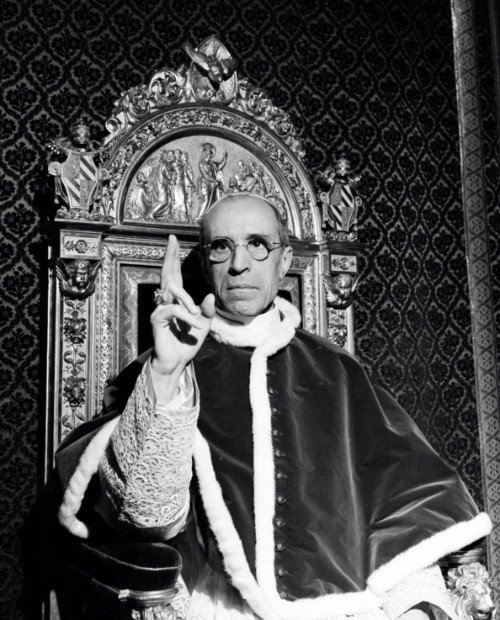The debate about the late Pope Pius XII and the Holocaust – what he knew and why he did not openly denounce it – has been hotly contested for decades in articles, books and conferences. In Berlin, it’s now taken to the streets.
To one street, to be more precise. The Pacelliallee, a tree-lined boulevard in western Berlin, bears the name of Archbishop Eugenio Pacelli, the Vatican’s nuncio in Germany from 1917 to 1929 who later became Pope Pius XII.
The long-awaited opening of the Vatican archives from World War II last March, allowing the closest look yet at Pius’ diplomacy, has excited rival researchers sifting the files for a rationale for his relations with the Nazi regime: proof, in other words, that he was an outright anti-Semite, as some allege, a secret Germanophile or simply a cautious diplomat.
In Berlin, it has also injected street names into decades-long debate. In the anti-Pius camp are two historians, backed by Germany’s ombudsman for anti-Semitism, who last year asked Berlin authorities to strip Pius’ name from the Pacelliallee because he allegedly knew all about the Holocaust but failed to denounce it.
The petition by their “No-Pa Berlin” group has attracted about 1,100 signatures so far – about as many as have signed a counterpetition launched to defeat it.
Read the article by Tom Henegan in Sight Magazine.

